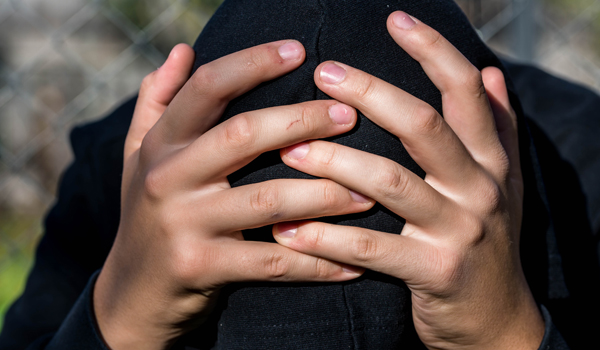 On February 5, 2021, Catholic University Law Review hosted its annual symposium—held virtually this year. The program, “Assessing Graham v. Florida at the Ten-Year Mark,” was organized by Law Review's Lead Articles Editors, Christina Pashaj (3L), and Richard Couch (3L), with the guidance of Professor Cara Drinan, and brought together distinguished speakers to discuss and reflect on the effects of the case ten years after its decision.
On February 5, 2021, Catholic University Law Review hosted its annual symposium—held virtually this year. The program, “Assessing Graham v. Florida at the Ten-Year Mark,” was organized by Law Review's Lead Articles Editors, Christina Pashaj (3L), and Richard Couch (3L), with the guidance of Professor Cara Drinan, and brought together distinguished speakers to discuss and reflect on the effects of the case ten years after its decision.
The event began with opening remarks from Andrea Laprade (3L), Editor-in-Chief of Catholic University Law Review, Vol. 70. Laprade greeted those in attendance and then introduced keynote speaker, Professor Perry Moriearty, Associate Professor of Law at the University of Minnesota Law School. Specializing in juvenile justice, criminal justice, and race and the law, Moriearty is a nationally recognized expert on juvenile sentencing and policy.
Her research and scholarship have been cited in several publications and legal decisions. Moriearty’s keynote address laid the foundation for the day’s panel discussion. She established the fundamental difference between adolescents and adults and noted that while these dictate many of the laws across the country, they do not often extend to punishment and sentencing of adolescents who commit crimes. She then discussed the historical arc of juvenile sentences to life without parole. In particular, she highlighted the new era of juvenile sentencing ushered in by four Supreme Court decisions—the second of which being Graham v. Florida—that brought the United States to where it is today.
Panel 1: Resentencing Hearings Post-Graham
The first panel took an in-depth look at how sentencing and re-sentencing of juvenile offenders has played out in the past decade since the Graham v. Florida decision. Given their experience, the panelists provided a better understanding of the topic from the judge, prosecutor, and public defender perspectives.
Moderator: Erin M. DeRiso '15, Assistant United States Attorney, Superior Court Division, U.S. Attorney's Office for the District of Columbia
Panelists: Vida Johnson, Associate Professor of Law, Georgetown University, former supervising attorney in the Trial Division at the Public Defender Service for the District of Columbia; Chesley Lightsey, Assistant District Attorney, Homicide Unit at the Philadelphia District Attorney's Office; and The Honorable Jack Panella '80, Superior Court of Pennsylvania
Panel 2: Legislative Effects of Graham
The second panel turned the focus towards the legislative effects post-Graham. While major cases, like Graham v. Florida, have been instrumental in changing juvenile sentencing, there are many legal issues that the court decisions failed to answer. The panel discussed the importance of advocacy and litigation in the post-Graham world in continuing to affect change.
Moderator: Cara Drinan, Professor of Law, The Catholic University of America
Panelists: Marsha Levick, Chief Legal Officer & Co-Founder, Juvenile Law Center; Heather Renwick, Legal Director, Campaign for the Fair Sentencing of Youth; and Riya Saha Shah, Managing Director, Juvenile Law Center
Panel 3: Life after Graham
The final panel of the day moved away from abstract discussion of the Graham decision and provided those in attendance the opportunity to hear from individuals who have been directly impacted by Graham v. Florida. After reading a letter from Terrance Graham—whose case and victory set all of this change in motion despite still being incarcerated himself—Alonzo Turner-Bey and Roy Middleton spoke to the group. Both men shared their experiences with juvenile sentencing, their vulnerability as adolescents in an adult system, and how they changed and evolved throughout their sentences and subsequent releases.
Moderator: Professor Marc Howard, Professor of Government and Law & Director of Prisons and Justice Initiative, Georgetown University
Panelists: Roy Middleton and Alonzo E. Turner-Bey
Following the panel discussions, Laprade offered closing remarks and thanked each of the panelists and the audience for their time.
